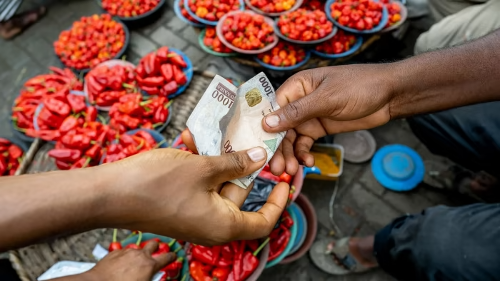Nigeria’s central bank delivers big rate hike amid stubborn inflation

TLDR
- The Central Bank of Nigeria raises key interest rate to record high of 26.25% to combat inflation and stabilize currency.
- 11th consecutive rate hike by monetary policy committee in response to factors such as electricity tariff increase, transport cost rise, and currency depreciation.
- Inflation hits 28-year high of 33.7% year-on-year in April, prompting further tightening measures by the central bank.
The Central Bank of Nigeria raised its key interest rate to a new record high of 26.25% from 24.75% to curb persistent inflation and support the nation’s weakened currency. This marks the 11th consecutive rate hike by the monetary policy committee.
This is the third rate increase this year, following hikes of 200 basis points in March and 400 basis points in February. Factors driving inflation include a threefold increase in electricity tariffs, higher transport costs, and a more than 27% depreciation of the naira over the past month.
Since the tightening campaign began in May 2022, the central bank has raised the key rate by 1,475 basis points. Inflation has been accelerating since January 2023, now reaching a 28-year high of 33.7% year-on-year in April.
Key Takeaways
The depreciation of the currency by 28% against the dollar in the past four weeks “means additional and sizeable rate hikes are needed. The slide is the latest bout of volatility since President Bola Tinubu, who marks his first year in office next week, relaxed foreign exchange controls in June. The unit has declined around 69% against the greenback since then, fanning inflation that quickened to 33.7% last month — more than triple the 9% ceiling of the central bank’s target range. Foreign investors are advised to consider strategies such as diversification, hedging, and focusing on stable sectors to mitigate risks, while closely monitoring central bank policy decisions and seeking professional advice to navigate the challenges posed by currency depreciation and inflation in Nigeria.

Next Frontier
Stay up to date on major news and events in African markets. Delivered weekly.
Pulse54
UDeep-dives into what’s old and new in Africa’s investment landscape. Delivered twice monthly.
Events
Sign up to stay informed about our regular webinars, product launches, and exhibitions.




